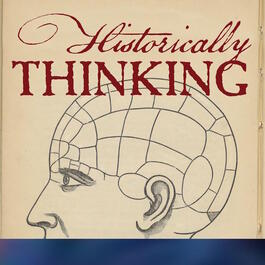
Oral History: Douglas A. Boyd explains the basics of the oldest—and newest—historical method
“Oral history is a field of study and a method of gathering, preserving, and interpreting the voices and memories of people, communities, and participants in past events.” That is the definition provided by no less an authority than the Oral History Association. And yet this brief, simple, and seemingly authoritative definition is accompanied by some ambiguity. On the one hand the Oral History Association proclaims that oral history is the oldest type of historical inquiry, stemming back to the origins of humanity itself. But on the other hand, oral history is one of the newest types of historical discipline, owing its birth to the invention of recording technology, and its rapid technological , from the introduction of magnetic tape recorders as consumer devices in 1947, to in 2025 the widespread field use of the superb digital recording studio and processor you typically refer to as your “phone”. With us to explain the basics of the discipline of Oral History is Douglas A. Boyd. He is an oral historian, archivist, folklorist, musician, author and currently Director of the Louie B. Nunn Center for Oral History at the University of Kentucky. He is co-editor of Oral History and Digital Humanities: Voice, Access, Engagement (2014), producer of the documentary Kentucky Bourbon Tales: Distilling the Family Spirit, and author of Crawfish Bottom: Recovering a Lost Kentucky Community. But most recently he is the author of Oral History: A Very Short Introduction, which is the subject of our conversation today. For more show notes, and our full archive, go to the Historically Thinking Substack Chapters00:00:00 Introduction: Defining Oral History00:01:53 The Ambiguity and Multidisciplinary Nature of Oral History00:07:34 The Modern History of Oral History and Recording Technology00:21:07 Early Recording Technology and the Evolution of Interviews00:34:27 Oral History vs. Oral Tradition00:36:51 What Makes an Oral History Interview Different00:41:17 The First Question: Tell Me About Yourself00:47:19 Avoiding Leading Questions00:50:37 The Power of Silence and Active Listening00:54:07 The Art of Being Prepared Without Being a Know-It-All01:03:26 The Digital Archive and Preservation Challenges01:07:47 Enhancing Access and Discovery in the Digital Age01:14:16 Ethical Access and Privacy Concerns01:15:33 Practical Advice for Thanksgiving Interviews01:19:49 Getting Started: Simple Questions and Curiosity01:23:09 The Value of Multiple Sessions and Follow-Up Interviews01:25:56 Closing Remarks
From "Historically Thinking"


Comments
Add comment Feedback